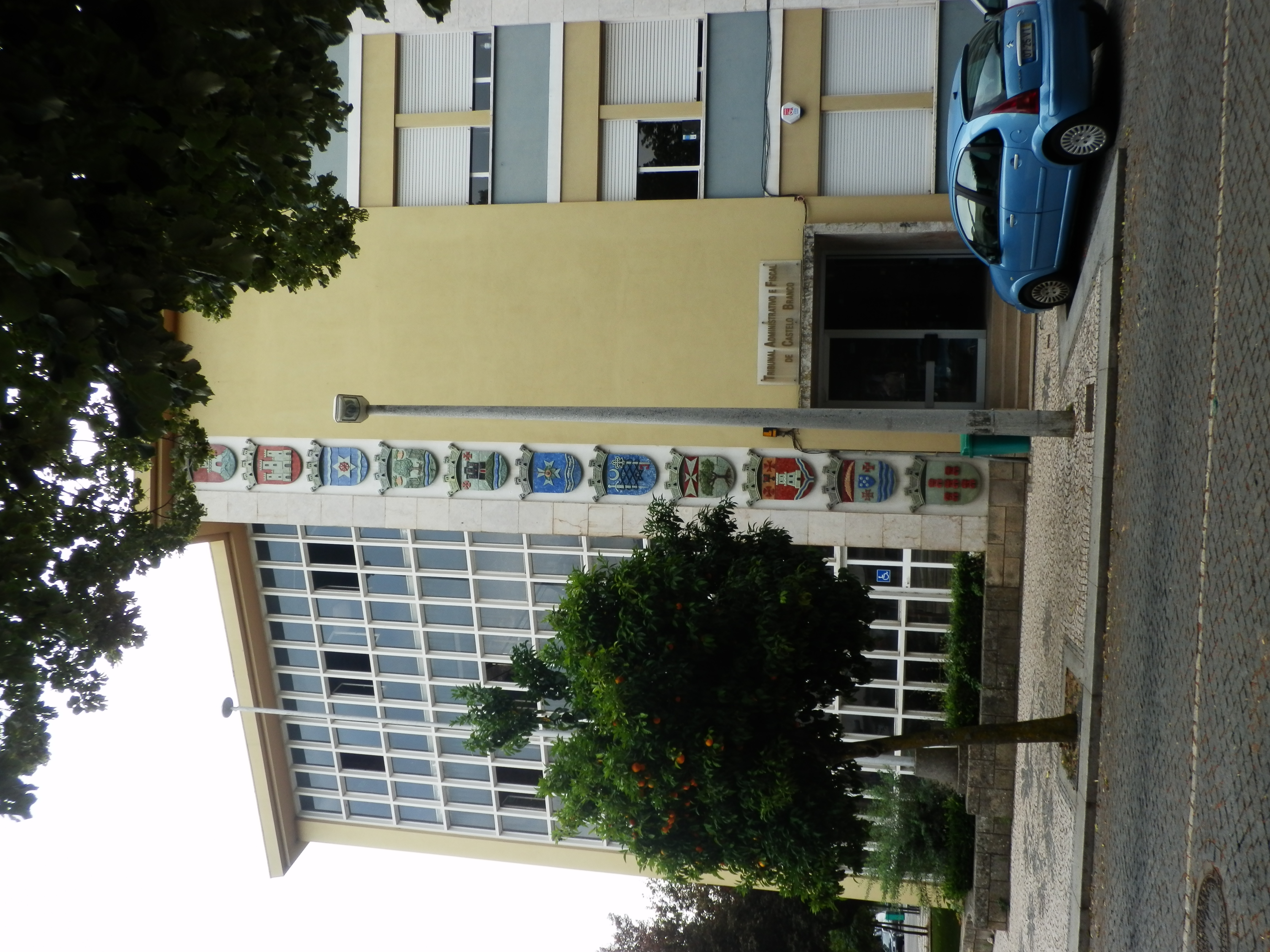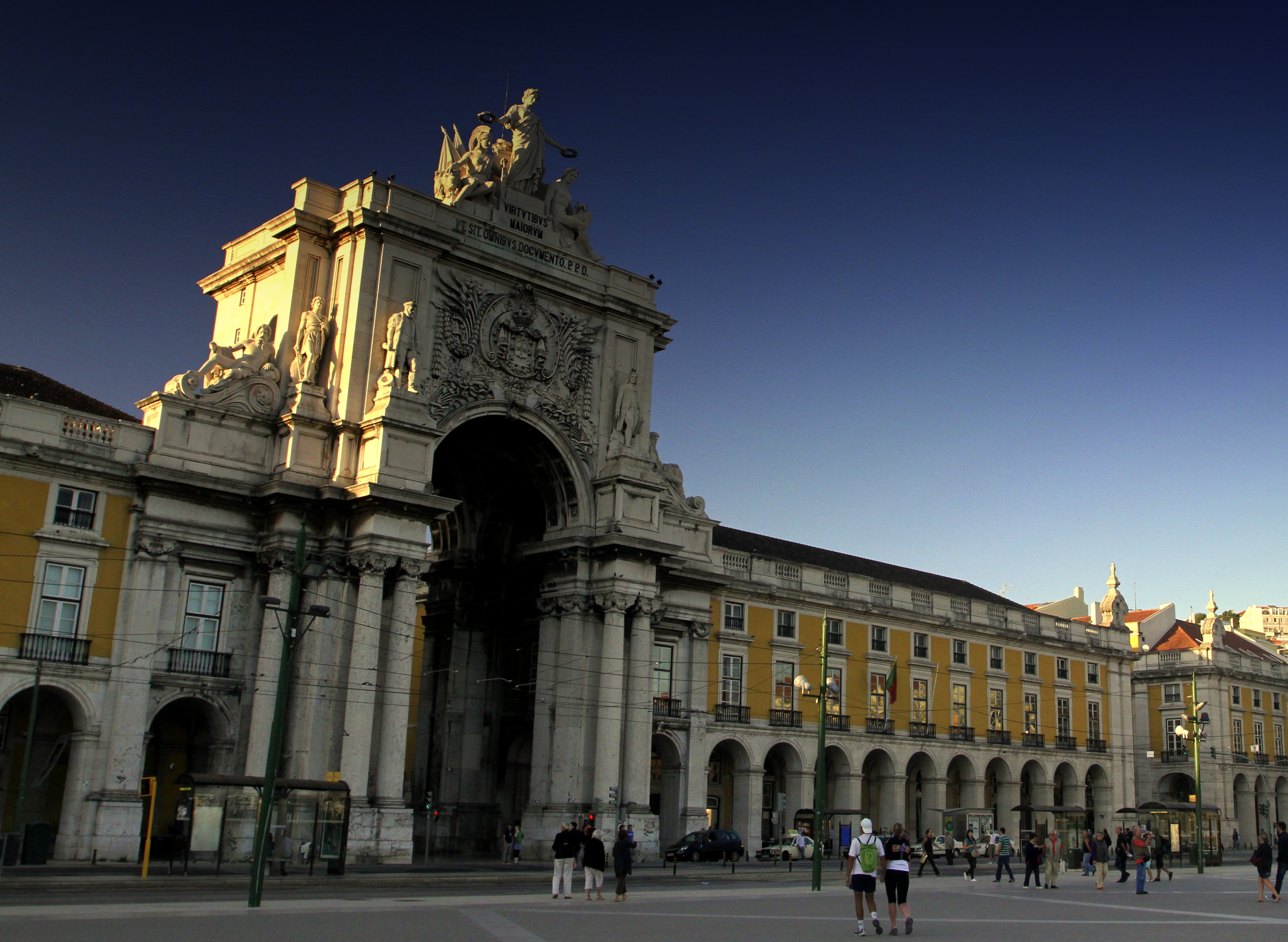|
Public Prosecution Service (Portugal)
The Public Prosecution Service (; {{lit, Public Ministry; MP) is the body of the judiciary of Portugal responsible for the public prosecution and the representation of the state before the courts. It is an hierarchic organized body, composed of magistrates and headed by the ''Procurador-Geral da República'' (attorney-general of the Republic). Although having the word "ministry" in its name, the MP is not a ministry in the sense of government department. Roles Among others, the Portuguese constitution and the common law give the following roles to the Public Prosecution Service: * to conduct the public prosecution; * to direct the criminal investigation; * to participate in the execution of the criminal policy; * to represent the State; * to defend the democratic legality; * to defend the rights and the interests of the child and young people; * to exercise ''ex officio'' the patronage of the workers and their families in the defense of their social rights; * to defend the collec ... [...More Info...] [...Related Items...] OR: [Wikipedia] [Google] [Baidu] |
Portugal
Portugal, officially the Portuguese Republic, is a country on the Iberian Peninsula in Southwestern Europe. Featuring Cabo da Roca, the westernmost point in continental Europe, Portugal borders Spain to its north and east, with which it shares Portugal-Spain border, the longest uninterrupted border in the European Union; to the south and the west is the North Atlantic Ocean; and to the west and southwest lie the Macaronesia, Macaronesian archipelagos of the Azores and Madeira, which are the two Autonomous Regions of Portugal, autonomous regions of Portugal. Lisbon is the Capital city, capital and List of largest cities in Portugal, largest city, followed by Porto, which is the only other Metropolitan areas in Portugal, metropolitan area. The western Iberian Peninsula has been continuously inhabited since Prehistoric Iberia, prehistoric times, with the earliest signs of Human settlement, settlement dating to 5500 BC. Celts, Celtic and List of the Pre-Roman peoples of the Iberia ... [...More Info...] [...Related Items...] OR: [Wikipedia] [Google] [Baidu] |
Lisbon
Lisbon ( ; ) is the capital and largest city of Portugal, with an estimated population of 567,131, as of 2023, within its administrative limits and 3,028,000 within the Lisbon Metropolitan Area, metropolis, as of 2025. Lisbon is mainland Europe's westernmost capital city (second overall after Reykjavík, Reykjavik), and the only one along the Atlantic coast, the others (Reykjavik and Dublin) being on islands. The city lies in the western portion of the Iberian Peninsula, on the northern shore of the River Tagus. The western portion of its metro area, the Portuguese Riviera, hosts the westernmost point of Continental Europe, culminating at Cabo da Roca. Lisbon is one of the List of oldest continuously inhabited cities, oldest cities in the world and the second-oldest European capital city (after Athens), predating other modern European capitals by centuries. Settled by pre-Celtic tribes and later founded and civilized by the Phoenicians, Julius Caesar made it a municipium ... [...More Info...] [...Related Items...] OR: [Wikipedia] [Google] [Baidu] |
Amadeu Guerra
Amadeu Fernandes da Silva Sobrinho, or simply Amadeu (born 6 March 1990), is a Brazilian-born naturalized Azerbaijani professional futsal Futsal is a variant of association football played between two teams of five players each on a court smaller than a football pitch. Its rules are based on the Laws of the Game (association football), Laws of the Game of association football, and i ... player who plays for Nacional Zagreb and the Azerbaijan national futsal team. References External linksUEFA profile 1990 births Living people Sportspeople from Recife Azerbaijani men's futsal players Araz Naxçivan players {{Azerbaijan-footy-bio-stub ... [...More Info...] [...Related Items...] OR: [Wikipedia] [Google] [Baidu] |
Judiciary Of Portugal
The judiciary of Portugal is a system of courts that together constitute one of the four organs of Sovereignty as defined by the Portuguese Constitution. The courts are independent from the other three Portuguese organs of Sovereignty (President of Portugal, President of the Republic, Government of Portugal, Government and Assembly of the Republic (Portugal), Assembly of the Republic). The Portuguese courts are divided by four independent orders, each of which corresponds to the separate Constitutional, Judicial, Administrative and Auditors jurisdictions. The public prosecution and the representation of the State before the courts is assured by an independent body of magistrates, known as Public Ministry. The Ministry of Justice is the Ministry (government department), Government department responsible for the administration of the Judiciary system. Orders of courts The Portuguese judiciary system is not unitary, but it is instead divided in four independent categories or ord ... [...More Info...] [...Related Items...] OR: [Wikipedia] [Google] [Baidu] |
Ministry (government Department)
Ministry or department (also less commonly used secretariat, office, or directorate) are designations used by first-level executive bodies in the machinery of governments that manage a specific sector of public administration." Энциклопедический словарь Брокгауза и Ефрона", т. XIX (1896): Мекенен — Мифу-Баня, "Министерства", с. 351—357 :s:ru:ЭСБЕ/Министерства These types of organizations are usually led by a politician who is a member of a cabinet—a body of high-ranking government officials—who may use a title such as minister, secretary, or commissioner, and are typically staffed with members of a non-political civil service, who manage its operations; they may also oversee other government agencies and organizations as part of a political portfolio. Governments may have differing numbers and types of ministries and departments. In some countries, these terms may be used with ... [...More Info...] [...Related Items...] OR: [Wikipedia] [Google] [Baidu] |
Portuguese Constitution
The present Constitution of Portugal - officially the Constitution of the Portuguese Republic - was adopted in 1976 after the Carnation Revolution. It was preceded by a number of constitutions including the first one created in 1822 (following the Liberal Revolution of 1820), 1826 (drawn up by King Dom Pedro IV), 1838 (after the Liberal Wars), 1911 (following the 5 October 1910 revolution), and 1933 (after the 28 May 1926 coup d'état). Constitution of 1976 The Constitution of 1976 was drafted by a Constituent Assembly that was elected on 25 April 1975, one year after the Carnation Revolution. It was largely drafted in 1975, then finished and officially promulgated in early 1976. Portugal's democratic future was still unclear at the time of the constitution's drafting. Even after a leftist coup had been put down in November 1975, it was not known if the armed forces would respect the assembly and allow work on the constitution to go forward. The '' Movimento das Forças ... [...More Info...] [...Related Items...] OR: [Wikipedia] [Google] [Baidu] |
Ex Officio
An ''ex officio'' member is a member of a body (notably a board, committee, or council) who is part of it by virtue of holding another office. The term '' ex officio'' is Latin, meaning literally 'from the office', and the sense intended is 'by right of office'; its use dates back to the Roman Republic. According to '' Robert's Rules of Order'', the term denotes only how one becomes a member of a body. Accordingly, the rights of an ''ex officio'' member are exactly the same as other members unless otherwise stated in regulations or bylaws. It relates to the notion that the position refers to the position the ex officio holds, rather than the individual that holds the position. In some groups, ''ex officio'' members may frequently abstain from voting. Opposite notions are dual mandate, when the same person happens to hold two offices or more, although these offices are not in themselves associated; and personal union, when two states share the same monarch. For profit and nonpr ... [...More Info...] [...Related Items...] OR: [Wikipedia] [Google] [Baidu] |
Government Of Portugal
A government is the system or group of people governing an organized community, generally a state. In the case of its broad associative definition, government normally consists of legislature, executive, and judiciary. Government is a means by which organizational policies are enforced, as well as a mechanism for determining policy. In many countries, the government has a kind of constitution, a statement of its governing principles and philosophy. While all types of organizations have governance, the term ''government'' is often used more specifically to refer to the approximately 200 independent national governments and subsidiary organizations. The main types of modern political systems recognized are democracies, totalitarian regimes, and, sitting between these two, authoritarian regimes with a variety of hybrid regimes. Modern classification systems also include monarchies as a standalone entity or as a hybrid system of the main three. Historically prevale ... [...More Info...] [...Related Items...] OR: [Wikipedia] [Google] [Baidu] |
President Of Portugal
The president of Portugal, officially the president of the Portuguese Republic (, ), is the head of state and highest office of Portugal. The powers, functions and duties of prior presidential offices, and their relation with the prime minister and cabinets have over time differed with the various Portuguese constitutions. Currently, in the Third Republic, a semi-presidential system, the president holds no direct executive power, unlike his counterparts in the United States and France. However, even though he is in general a ceremonial figure, he holds some powers less-commonly found in parliamentary systems: one of his most significant responsibilities is the promulgation of all laws enacted by the Assembly of the Republic (parliament) or the Government (an act without which such laws have no legal validity), with an alternative option to veto them (although this veto can be overcome in the case of laws approved by Parliament) or send them to the Constitutional Court for a ... [...More Info...] [...Related Items...] OR: [Wikipedia] [Google] [Baidu] |
Polícia Judiciária
The (; PJ; ) is the national criminal investigation police agency of Portugal, focused in fighting serious crimes, including homicides, kidnapping, organized crime, terrorism, illegal drug trade, corruption, cybercrime and financial crime. It is integrated into the Ministry of Justice, but operates under the supervision of the Public Ministry. Several countries and territories that were once overseas provinces of Portugal maintain criminal investigation police forces modeled after the Portuguese one, with some of them retaining also the name ''Polícia Judiciária''. These are the cases of Cabo Verde, Guinea-Bissau and Macau. The ''Polícia Judiciária Militar'' (Military Judiciary Police) is a separate criminal investigation police agency that operates under the Ministry of National Defense A ministry of defence or defense (see spelling differences), also known as a department of defence or defense, is the part of a government responsible for matters of defence and ... [...More Info...] [...Related Items...] OR: [Wikipedia] [Google] [Baidu] |
Law Of Portugal
The Law of Portugal is part of the family of what in English-speaking countries are sometimes called the " civil law" legal systems, referring to legal systems that developed at least in conversation or close ties with systems influenced by the ius commune medieval European tradition of Roman law (however, Scandinavian legal systems are often counted as such, despite the former not penetrating in influence, as opposed to local North Germanic customary law). As such, it has many common features with the legal systems found in most of the countries in Continental Europe. Along its history, the law practiced in Portugal started to be based in the customary law of the indigenous peoples that initially occupied the region, that was later influenced by the Roman and Visigothic laws. From the 13th until the 18th centuries, the main influence was the Justinian and Canon laws. In the 18th century, the main influence started to be the natural law. CAETANO, Marcello«História do Direito ... [...More Info...] [...Related Items...] OR: [Wikipedia] [Google] [Baidu] |




